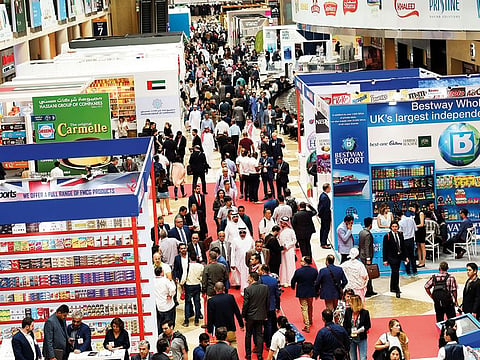Brexit likely to cause ‘massive casualties’ in Welsh agriculture
UAE, Far East to benefit from possible drop in prices of British meat

Dubai: A potential drop in prices of British meat products if the United Kingdom leaves the European Union on March 29 could benefit export markets such as the UAE and the Far East.
Rhys Llywelyn, market development manager of Meat Promotion Wales, the body responsible for developing and promoting Welsh red meat, said that any friction in trade or a tariff on exports to the EU is expected to result in a “huge surplus” of lamb in the UK, sending prices lower. European countries currently account for the lion’s share of Welsh meat exports.
“The fact that the price may go through the floor may help us in some markets such as Dubai and the Far East, because they benefit from the price reduction. It’s really hard to understand how it’s going to happen without massive casualties in the agriculture industry in Wales,” he told Gulf News.
We’re looking at farmers who have been farming for maybe four or five generations, and that could be lost overnight because of some foolish politician.

Llywelyn described the current environment of uncertainty regarding Brexit as already “extremely damaging” to businesses.
“We’re looking at farmers who have been farming for maybe four or five generations, and that could be lost overnight because of some foolish politicians,” he said.
Wales, a major producer of lamb, currently exports about 40 per cent of its lamb, with the other 60 per cent consumed in the UK. Of the exported lamb, 90 per cent goes to countries in the EU.
If the UK were to leave the European Union with no deal, British exporters would have to adhere to World Trade Organisation rules, which would stipulate a tariff of 40 to 60 per cent on lamb cuts. With Welsh lamb already a pricier product, Llywelyn said the market will not tolerate such a hike in prices.
“No product will be able to survive that. What that means is the cost paid to the producers in Wales could be halved or even down to a third of what they get now. The impact on the rural communities of Wales could be huge,” he said.
The UK is yet to finalise the terms of the deal under which it will leave the EU, after Parliament voted against British Prime Minister Theresa May’s latest deal. The EU said the rejected deal is not going to be renegotiated, leaving the future of the UK uncertain as to whether it will have a deal by March 29 or whether it will crash out of the Union.
While a no-deal situation is what businesses dread the most, a deal that leaves any friction in trade is going to cost exporters money, Llywelyn said.
He was speaking at Gulfood 2019, the food and beverage trade exhibition currently running in Dubai. British meat and dairy exporters were present to discuss growth opportunities with distributors in the region.
This year, British exporters are able to sell even more to international markets due to the plunge the pound has experienced since late 2016. Llywelyn said the weaker currency has “without a doubt” had a stronger impact on the ability to export than any other factor.
Sign up for the Daily Briefing
Get the latest news and updates straight to your inbox



